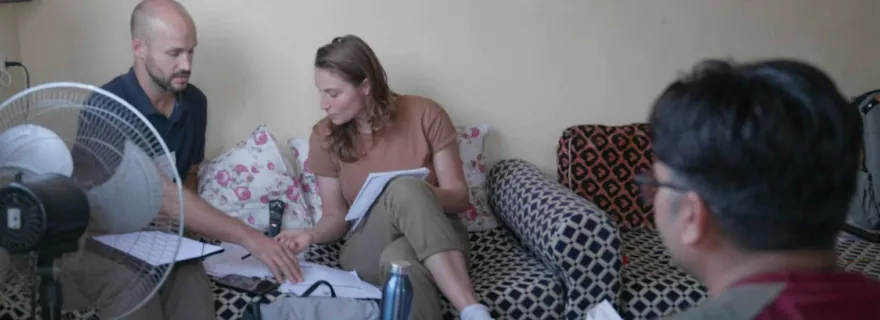"Oh boy, I got that wrong"
Interviews often unfold in a far more dynamic and unpredictable manner than presented in methodological textbooks. This interview highlights the challenges of conducting a qualitative interview in a multilingual setting.
Language
Ahmed and Fatiha speak Urdu and Punjabi and have a basic knowledge of English, while in Morocco, Arabic and occasionally French are the primary languages spoken. This language divide makes it especially difficult for them to register their children with Moroccan authorities. Because I don't speak either of their native languages, I relied heavily on Tony, a research assistant who frequently speaks Urdu and Punjabi. Tony's role as a translator proved essential in bridging the communication gap.
When I asked Ahmed to explain the registration process, he produced a blue folder containing all sorts of official documents. Since these were issued by Moroccan authorities, neither he nor Fatima could fully understand them. Although these documents are illegible to them, they are carefully preserved.
Creating a timeline
The interview quickly became complicated as we discussed meetings with school principals, hospital staff, and registrars—interactions that took place in a language the couple didn't understand, making their explanations to me even more challenging. To provide structure, we sketched a timeline together on a sheet of A4 paper. Based on the documents, we reconstructed when major life events occurred, where these were registered and who was involved. This revealed that the registration of their eldest child took almost two years.
Qualitative interviews are based on memory, which changes over time. Some memories can also be vague or incomplete, sometimes leading to inconsistencies in respondents' accounts. This, among other reasons, makes reconstructing past events rarely easy. Therefore, I opted for a flexible approach, using documents as reference points and creating a timeline together. This experience confirms that interviews aren't about uncovering objective truths, but about understanding life experiences and perceptions, which are rarely linear.


